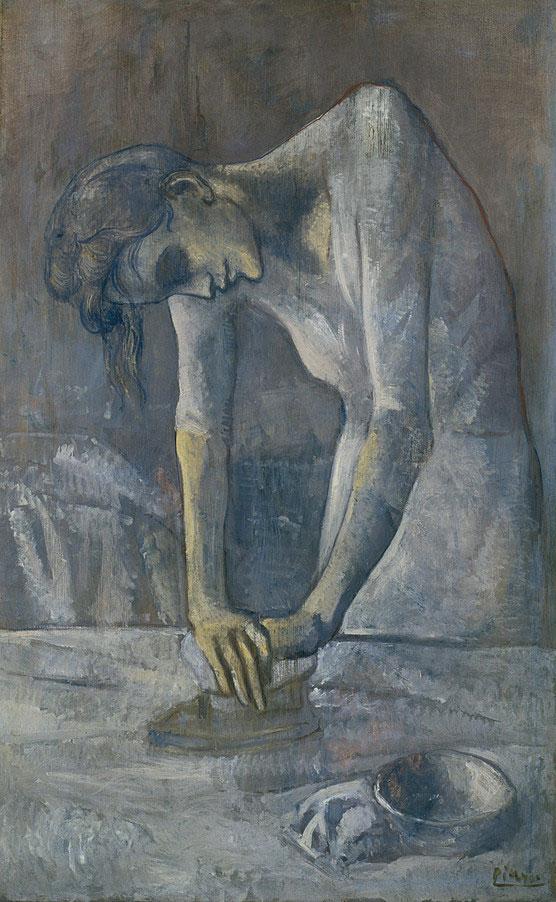The heir of a prominent German-Jewish family is suing New York’s Guggenheim Museum for the return of a prized Pablo Picasso painting, which he says was sold under the threat of Nazi persecution 85 years ago.
A lawsuit filed January 20 in Manhattan Supreme Court alleges that the painting, Woman Ironing (1904), was sold under duress in 1938 as its owner, Karl Adler, rushed to flee Nazi-run Germany with his wife, Rosi Jacobi. The plaintiffs in the case, which include one of Adler and Jacobi’s direct descendants—Thomas Bennigson—and numerous Jewish charities, are seeking the return of the artwork or $100 to $200 million in damages.
The case, which was filed under the provisions of the 2016 Holocaust Expropriated Art Recovery Act, may come down to whether or not the artwork was determined to have been sold illegally or through extortion.
“[Adler] would not have disposed of the painting at the time and price that he did, but for the Nazi persecution to which he and his family had been, and would continue to be, subjected,” the filing reads.

A view of the exterior facade of the Solomon R. Guggenheim Museum in New York City. Photo by Ben Hider/Getty Images.
The board chairman of a major leather manufacturer, Adler acquired the Blue Period painting in 1916, from the Munich-based gallery owner Heinrich Thannhauser. Twenty-two years later, the businessman and his wife fled Germany amid increasing threats of persecution from the Nazis.
The couple planned to immigrate to Argentina and needed money to cover the cost of short-term visas and the Nazi-instituted flight tax. As part of an effort to liquidate his assets, Adler sold Woman Ironing to Heinrich Thannhauser’s son, Justin Thannhauser, for $1,552—or roughly $32,000 today.
The heir’s complaint characterizes the sale as “forced” and its price as “well below” market value.
“Thannhauser, as a leading art dealer of Picasso, must have known he acquired the painting for a fire sale price,” the suit says. “At the time of the sale, Thannhauser was buying comparable masterpieces from other German Jews who were fleeing from Germany and profiting from their misfortune.”
“Thannhauser was well-aware of the plight of Adler and his family,” the complaint goes on, “and that, absent Nazi persecution, Adler would never have sold the painting when he did at such a price.”
Citing its own provenance research, the Guggenheim said in a statement that the plaintiff’s case is “without merit.”
Woman Ironing entered the museum’s collection in 1978, following an extended loan and promised gift from Justin Thannhauser in 1965. But before the acquisition was final, Guggenheim administrators looked into the painting’s past and contacted Karl Adler’s son, Eric Adler, as part of the process.
The younger Adler “did not raise any concerns about the painting or its sale,” according to the institution. The museum also pointed out that the Thannhausers, too, were Jewish and subject to Nazi persecution.
“The extensive research conducted by the Guggenheim since first being contacted by an attorney representing these claimants demonstrates that the Guggenheim is the rightful owner of the painting,” the museum’s statement went on. “There is no evidence that Karl Adler or his three children, now deceased, ever viewed the sale as unfair or considered Thannhauser a bad‐faith actor, either at the time of the transaction or at any time since.”
A spokesperson for the Guggenheim further explained that the painting is currently on view at the museum, as it has been almost continuously since being acquired 45 years ago. The artwork is not accompanied by signage stating that it “changed hands due to theft, seizure, confiscation, forced sale, or other involuntary means” during the Nazi era, as required by a recently passed New York law.
A lawyer representing Adler and Jacobi’s heir and the other plaintiffs did not immediately respond to a request for comment.

























